 Vampire Weekend's Surprising Jewish Stories
Vampire Weekend's Surprising Jewish Stories
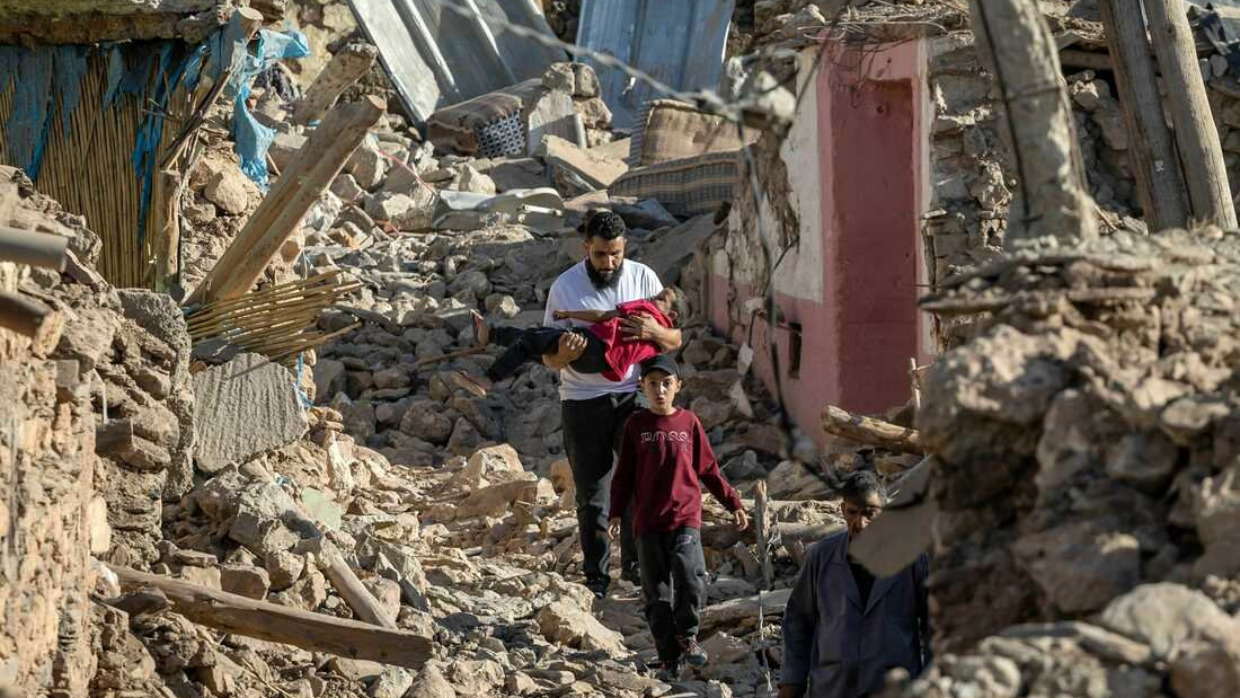

4 min read
Rabbi Dr. Danino was in the historic Jewish quarter of Marrakesh when disaster struck.
“It felt like a train was passing my room and it started shaking more and more like you were sitting on top of a washing machine.” This is how Rabbi Dr. Doron Danino describes the earthquake he experienced in the historic Jewish quarter of Marrakesh, Morocco.
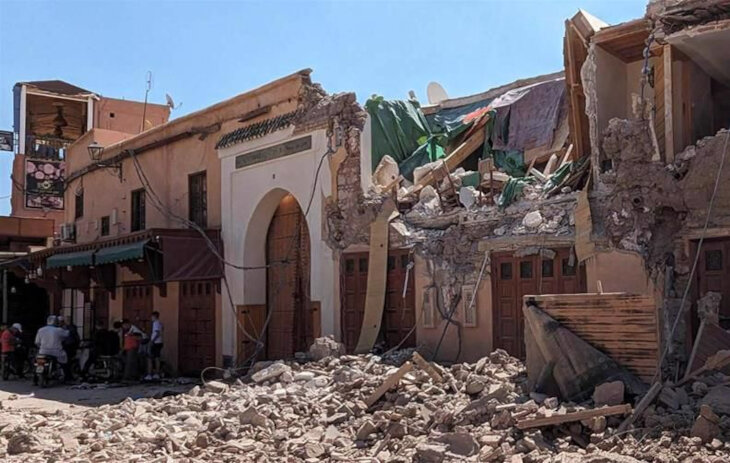 (Photo: Chabad Morocco)
(Photo: Chabad Morocco)
Danino, who lectures on Moroccan-Jewish History at Bar-Ilan University in Israel and is a senior fellow at the Herbert Kalman Institute for international peace resolution, was staying in a traditional Moroccan house called a riad when the earthquake struck at 11:11 PM local time, after attending Friday-night services at the Old City’s Slat Al Azama Synagogue and dining with the local Hilawa Jewish family.
“All the walls were shaking and some of the decorations on the wall fell. It lasted around a minute and a half,” says Danino, who was fortunate that his riad was newly built and only suffered cracks in its walls. After being escorted outside by hotel staff and the police, he found the streets of the Jewish quarter full of “homes that were destroyed and collapsed walls… wounded people and people crying.” Amongst the destruction were the synagogue and part of the house he prayed and dined in just hours ago.
After the difficult night, Danino rose to pray at Marrakesh’s second synagogue that is outside of the destroyed Jewish quarter. There, at the Al Azame synagogue in New Marrakesh, “the main prayer hall was fine, while the women’s section and some of other rooms of the attached museum were destroyed. The community prayed in the courtyard a very quick service.” The leader of the services and the person who read the Torah portion was remarkably the same Mr. Hilawa who hosted him Friday night and whose home was partially destroyed.
Following services, Danino walked around the city and witnessed a city that “was sad and destroyed.” He ate the third Shabbat meal in the part of the Hilawa’s home that was not destroyed, and the family was instructed after Shabbat to evacuate the entire home.
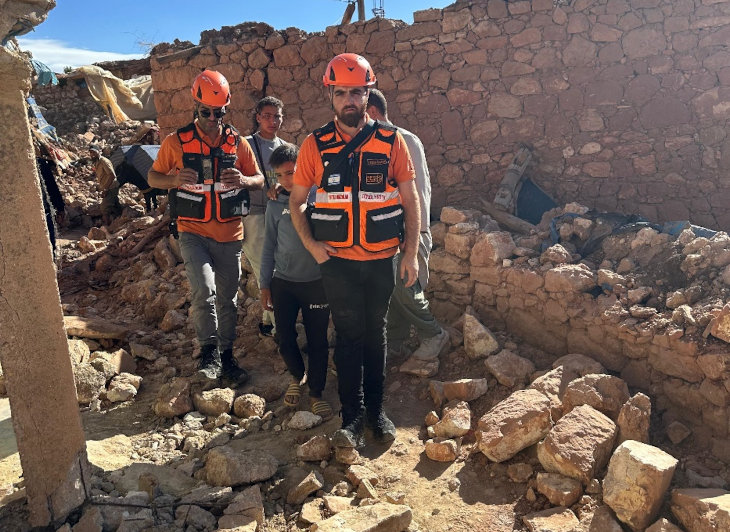
In the coming days and months, there will be plenty of time to discuss rebuilding the historic Jewish quarter of Marrakesh - a UNESCO recognized heritage site - but for now the priority in Marrakesh is caring for the direct needs of thousands of displaced persons. Rabbi Levi Banon, who runs the local Chabad House in Casablanca, saw on Sunday “thousands of people living outside in the heat in the local squares of the Old City of Marrakesh, near the synagogue.” He and a group of volunteers “went outside to help feed the people who are not able to get back into their homes… that can collapse at any moment.” Fortunately, the very small number of Jewish families whose homes were destroyed in the Old City of Marrakesh have already been resettled in new homes, says Banon.
Outside of the city of Marrakesh, one of the groups assisting in the relief effort arrived from Israel on Sunday morning. Raphael Poch, who is the international spokesperson for United Hatzalah of Israel, discussed with Aish the work of Hatzalah to arrive at the “less reached areas” most affected by the earthquake in the remote regions of Morocco, south of Marrakech.
Unlike the recent earthquake in Turkey, the situation in several areas visited by Hatzalah involved “less pulling people out of rubble” and more observing “destroyed buildings” with people outside “in need of basic humanitarian and medical aid, and in need of a roof over their heads.” Given that many of the structures in the rural locations accessed by Hatzalah are one-floor houses, many were able to safely exit their homes when the earthquake was first felt and before their homes collapsed, sparing them from the tragedy that has claimed close to 2,500 lives so far.
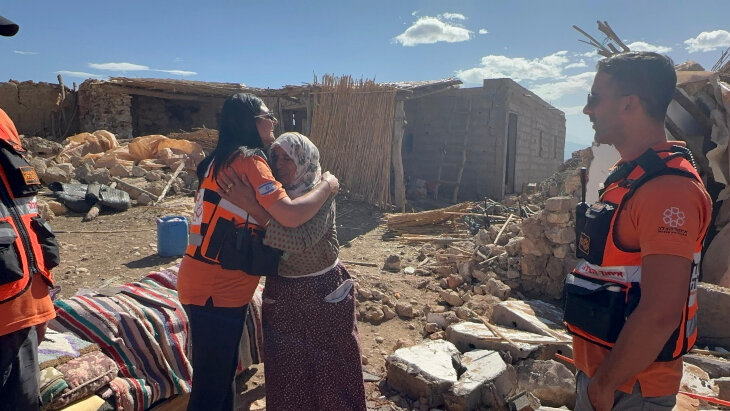 Israel Hatzalah members helping out
Israel Hatzalah members helping out
A three-day period of national mourning was announced in Morocco, and a prayer-service was held on Sunday in Jerusalem led by local Moroccan Rabbis and attended by the Moroccan ambassador to Israel and other Muslim representatives.
“The relationships between Jews and Muslims in Morocco are excellent,” according to Danino, whose was in Morocco to meet senior Muslim leaders interested in the co-existence of “the children of Abraham” and uniting Jews and Muslims.
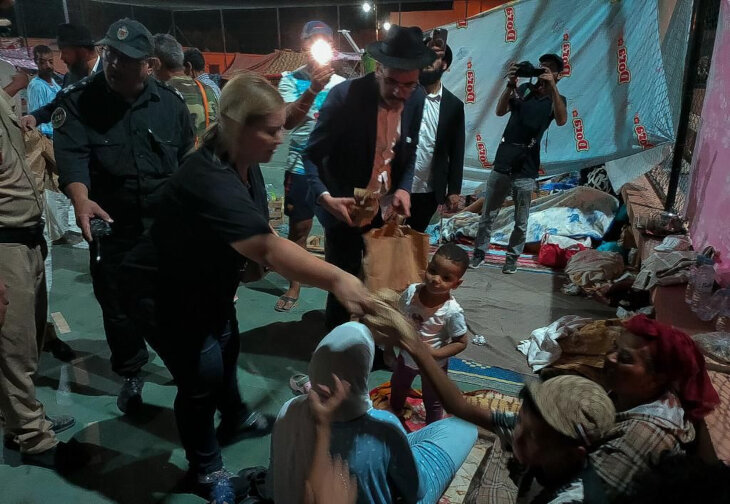 Rabbi Banon and others giving out food. (Photo: Chabad Morocco)
Rabbi Banon and others giving out food. (Photo: Chabad Morocco)
As Rabbi Banon says, “Morocco has a special relationship with the Jewish community and the royal family, and the Jewish community has a special place in its heart for the royal family. We have been seeing such great development in Morocco on all levels and we hope for it to continue. We just pray that the local authorities and government can put the parts back into place.”
To contribute:
Chabad https://chabadmorocco.com/chabad-morocco-earthquake-relief/
Hatzalah https://israelrescue.org/campaign/morocco-mission/
